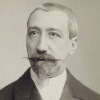“ For amusement is a relaxation, since it is a rest from work; and the lover of amusement is one of the people who go to excess in this. ”
Aristotle, Nicomachean Ethics (c. 334 BC - 330 BC). copy citation
| Author | Aristotle |
|---|---|
| Source | Nicomachean Ethics |
| Topic | amusement excess |
| Date | c. 334 BC - 330 BC |
| Language | English |
| Reference | |
| Note | Translated by W. D. Ross |
| Weblink | http://classics.mit.edu/Aristotle/nicomachaen.mb.txt |
Context
“But it is surprising if a man is defeated by and cannot resist pleasures or pains which most men can hold out against, when this is not due to heredity or disease, like the softness that is hereditary with the kings of the Scythians, or that which distinguishes the female sex from the male.
The lover of amusement, too, is thought to be self-indulgent, but is really soft. For amusement is a relaxation, since it is a rest from work; and the lover of amusement is one of the people who go to excess in this.
Of incontinence one kind is impetuosity, another weakness. For some men after deliberating fail, owing to their emotion, to stand by the conclusions of their deliberation, others because they have not deliberated are led by their emotion;”
source


